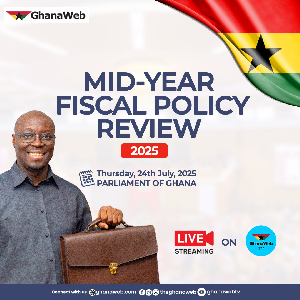US Development Finance Corporation Gets a Major Power Boost: Expanding Reach and Focusing on National Security

The Trump administration's proposed overhaul of the U.S. International Development Finance Corporation (DFC) signals a significant shift in America's approach to international development and investment. The plan, currently under review, aims to dramatically expand the DFC's reach, allowing it to finance projects in higher-income nations and significantly increase its financial firepower. This move is coupled with a sharpened focus on national security considerations, reflecting a broader strategic reorientation of U.S. foreign policy.
Expanding the Scope: Beyond Developing Nations
Traditionally, the DFC (and its predecessor, the Overseas Private Investment Corporation - OPIC) has primarily focused on projects in developing countries. The proposed changes would remove this restriction, enabling the agency to invest in countries with higher average incomes. This expansion is driven by a desire to counter the growing influence of China's Belt and Road Initiative, which has extended significant infrastructure investment into numerous countries, including some considered high-income.
Critics argue that shifting focus to higher-income countries could divert resources from nations that need them most. However, proponents contend that strategic investments in these countries can help promote U.S. economic interests, strengthen alliances, and provide a counterweight to China’s economic dominance.
Quadrupling Spending Power: A $60 Billion Injection
The most eye-catching aspect of the proposal is the planned quadrupling of the DFC's lending capacity, from $30 billion to $60 billion. This substantial increase would allow the agency to undertake larger and more complex projects, significantly expanding its impact on global development.
This increased financial capacity would be leveraged to support a wide range of initiatives, including infrastructure development, energy projects, and private sector investments. The agency would prioritize projects that align with U.S. strategic interests, particularly in areas such as energy security, digital infrastructure, and healthcare.
National Security Focus: A Strategic Shift
The proposed changes also emphasize a greater focus on national security. The DFC would be empowered to prioritize projects that enhance U.S. security interests, such as countering Chinese influence, promoting stability in strategic regions, and protecting critical infrastructure.
This shift reflects a growing recognition within the U.S. government that economic development and national security are inextricably linked. By strategically investing in infrastructure and economic growth, the U.S. aims to strengthen its geopolitical position and counter potential threats.
Challenges and Considerations
While the proposed changes offer significant opportunities, they also present challenges. Ensuring that the DFC’s investments are both economically viable and aligned with U.S. strategic interests will require careful planning and oversight. Transparency and accountability will be paramount to avoid allegations of corruption or mismanagement.
Furthermore, the agency will need to navigate complex political and economic landscapes in different countries, adapting its approach to local conditions and priorities. Building strong partnerships with local stakeholders will be essential for the success of its projects.
Looking Ahead
The proposed overhaul of the DFC represents a bold and potentially transformative shift in U.S. development policy. If implemented effectively, it could significantly enhance America’s ability to promote its economic interests, strengthen its alliances, and advance its national security objectives in a rapidly changing world. The coming months will be crucial as the proposal undergoes further review and debate within the U.S. government and among international stakeholders.






